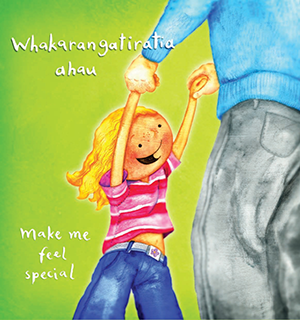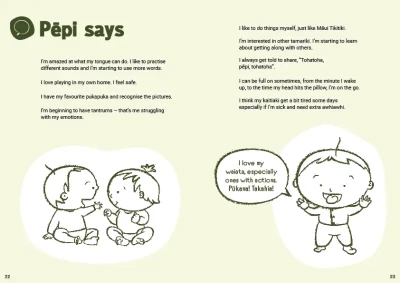
Learning about taking turns
Babies learn about interacting with others through their attachment to their primary caregiver. Guiding them to take turns with a toy can help play.
Being securely attached to their primary caregiver is a huge advantage for a child’s ongoing social relationships, because through that secure base they’ll learn more easily about getting on with others.
Their increased social interest is also a reflection of their brain maturing in the higher cortical regions, where pathways for many social interactions are made.
In the Whakatipu Te Pihinga 3 (page 23), pēpi says, ‘I’m interested in other tamariki. I’m starting to learn about getting along with others.'
Ask whānau:
- What have you noticed about your child’s behaviour around others?
- Do they act differently around other children compared with adults?
Playing with other children
Although they’ll be interested in other children, at this stage they’re unlikely to play co-operatively and prefer to play on their own.
Following this will be a stage of ‘parallel play’, where they like to play alongside others, although they may not be interacting.
These are all steps in their maturing social and emotional development, and eventually they’ll enjoy co-operative play with others.
- What do you do if they want to grab toys from other children?
- Why do you think they do that?
Suggest that it helps to use phrases that are specific, like ‘Tia’s turn’, rather than the more general and vague ‘Share the toys.’ This may help the child with their growing understanding of how to get along with others.
- Are they going to early childhood education sessions or groups?
- Yes – What have you noticed about how the teachers there manage relationships with children in their age group?
- No – What chance do they have to play around other kids?
- One or 2 others to play with is enough for most children at this stage. Shall we think of some ways we could arrange playtime with other kids?
Try an activity
Ball play
Playing with balls is a fun activity which encourages co-operation and taking turns with others — both children and adults.
Helpful resources for whānau
-
The value of play<
The value of playSimple information about the value of play and activities to develop skills, including playing with others.













